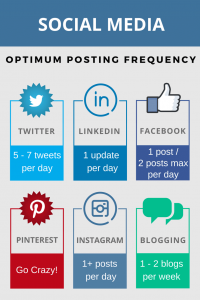Writing home page content is a crucial part of your marketing process.
It used to be that when a potential customer had questions they’d pick up the phone. If they liked what they heard, they may get in the car and drive down to your business to find out more.
Impressions were made on the phone and in the store – where business took place.
Now, there’s another layer to the process. Instead of going through the trouble of talking with someone, when a potential customer has questions, they’ll go to your website first. That’s where first impressions take place.
3 Key Components to Writing Home Page Content
Go ahead, Tell Them What You Do – Now is not the time to be shy. Your reader is in investigation mode when they click on your website. They’re still not 100 percent convinced they’re in the right spot. The easiest way to keep them reading is to tell them what you do.
When you network, do you have a 30-second elevator speech? Do you know how to cut to the chase and tell people how you help in the most concise way possible? That quick hit explanation should be front and center on your home page. It eliminates any confusion, or any potential thought from your reader that they might not be in the right place.
A few more thoughts on that explanation:
- Eliminate the geek speak. Your customers probably don’t understand your industry the way you do. Eliminate business jargon and acronyms. There’s also no need to use words that would otherwise belong in a doctoral dissertation. This is true throughout your website and marketing, but is especially important on your home page.
- Write it with your customers’ pain point in mind. Show them that you know how to solve their problem, and you can keep them interested. This is where you go for the overarching problem that you solve, and not just list one arbitrary problem on the list.
- Consider every word. Your potential customer will be reading between the lines to determine whether they should contact you. Are you giving them reasons not to call without knowing it.
Make it Conversational – A potential customer wants to know, like and trust you before they enter the sales process. Writing in a conversational tone can help them feel more at ease through the buying process.
When you’re writing home page content, picture yourself out for coffee with your potential customer. Use the same kind of language on your home page and throughout your website that you would use in the coffee house.
A few easy ways to accomplish conversational writing on your home page:
- Use contractions when possible. They may have driven your high school English teacher a little crazy, but they’ll put your reader at ease.
- Offer explanations of industry concepts without being overly condescending.
- Write in short paragraphs. Use subheads, bullet points and images to break up long text.
- Be direct. Tell them what you do. Tell them about your business. Invite them to contact you. In and out.
Make It Easy to Take Action – Again, your readers have options. I can’t stress that enough. So let’s say you’ve done everything right…Your readers still need to know what you want them to do.
Put your contact information in more than one place. Put it up high in the banner and down low in the footer. Put it at the end of your copy, or in other points. If your reader is convinced on doing business with you, make it easy for them.
Your home page needs a strong call to action. If they want to buy, tell them what the next step is.
Conclusion
Writing home page content is about making that first impression a great one. It’s the same idea as tidying up the store, and making sure your best customer service professionals are answering the phones.
Are you doing everything you can to master that first impression? When was the last time you received feedback on your home page content? This is the front door to your entire online presence.
Maybe it’s time to hire a marketing copywriter to make sure your home page content is creating an impact. Maybe it’s time to ask employees, colleagues or customers for some feedback. Whatever the case, make sure the front door portrays your business as attractive.
Digital & Social Articles on Business 2 Community(79)
Report Post




